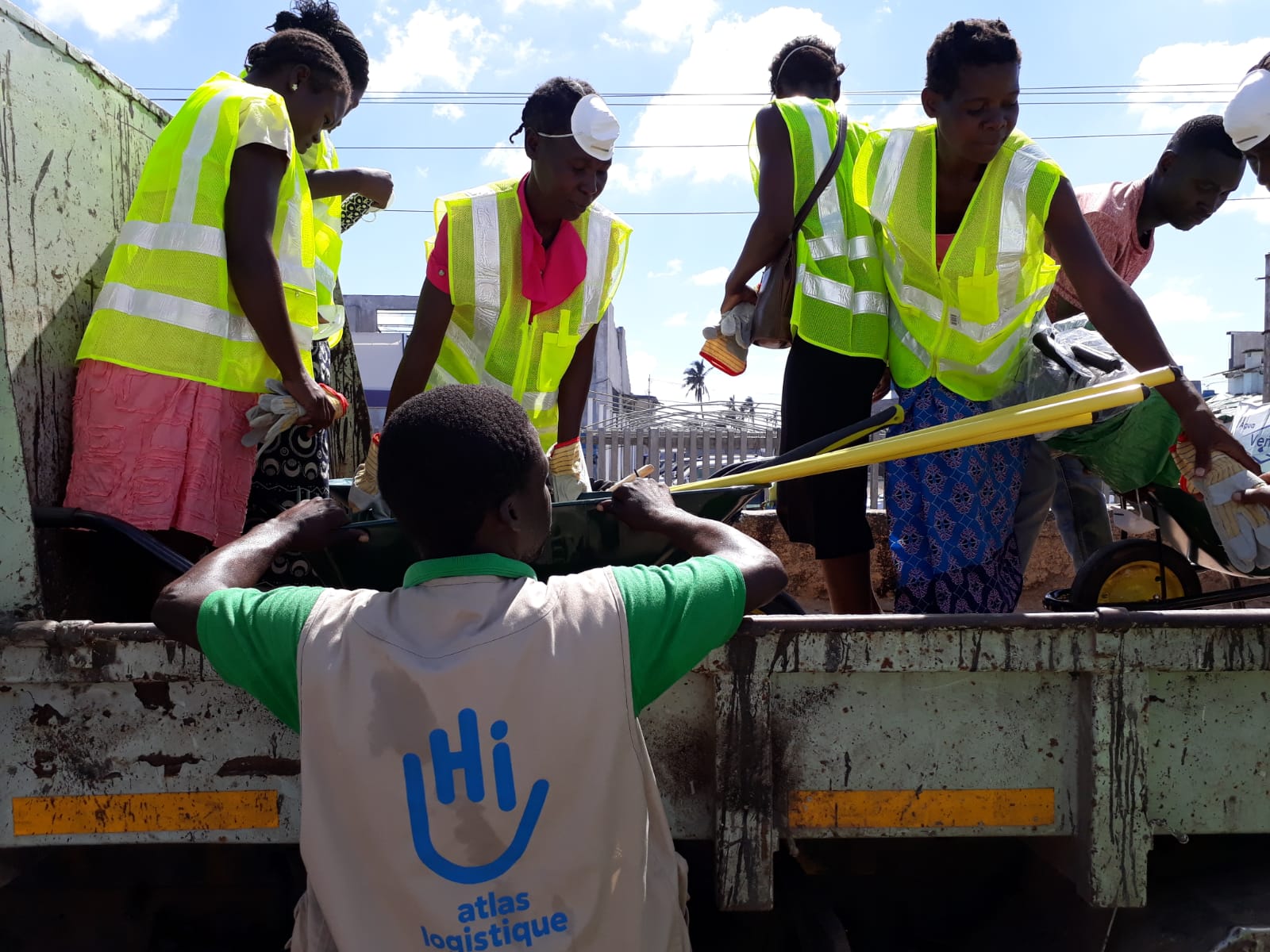HI supports forgotten communities in the slums of Beira, Mozambique
Thousands of residents of Beira city live in poverty in densely packed slums. Their makeshift homes could not withstand the force or cyclone Idai. HI is coordinating clean-up and reconstruction efforts for these hardest-hit communities.

Lucia in front of the remains of her home, destroyed by Cyclone Idai, Beira, Mozambique | © C.Briade / HI
Slums have been largely destroyed
HI’s Claude Briade visited some of the poorest areas of Beira shortly after the cyclone struck:
“ramshackle housing, no regulation, poor hygiene, inadequate health infrastructure, poverty... In ‘normal’ times, life is extremely hard in these tangled alleys. What had managed to emerge despite this poverty has been completely destroyed by Cyclone Idai.”
No shelter and threat of disease
For Lucia, a 38 year old single woman who cares for five children, the impact of the cyclone was devastating. Photographed in front of the remains of her families’ home several days after the passage of the cyclone, she had managed to salvage some possessions from the debris - clothes, tarpaulin, a bucket - but now faced the challenge of keeping the children dry in a home with no roof and protecting them from disease. Cholera has since taken hold in districts like Lucia’s, with almost 5,000 confirmed cases.
Clearing the debris
This is why HI’s clean-up and reconstruction work is essential. HI is providing trucks and materials to clear 10 of Beira’s slums. Local residents are employed to collect debris and clean the streets, which reduces the risk of disease and allows access for humanitarian workers.

Local residents remove debris from some of the poorest areas of Beira, Mozambique © P.Pillon / HI
HI rebuilding homes
HI will also distribute 2,500 shelter and repair kits in these districts to help people rebuild their destroyed homes.
“HI has pledged to help the most vulnerable victims of the cyclone: orphans, chronically ill children, people with disabilities, isolated seniors” explains Claude, “a great many of these highly vulnerable people can be found in Beira’s forgotten slums”.




